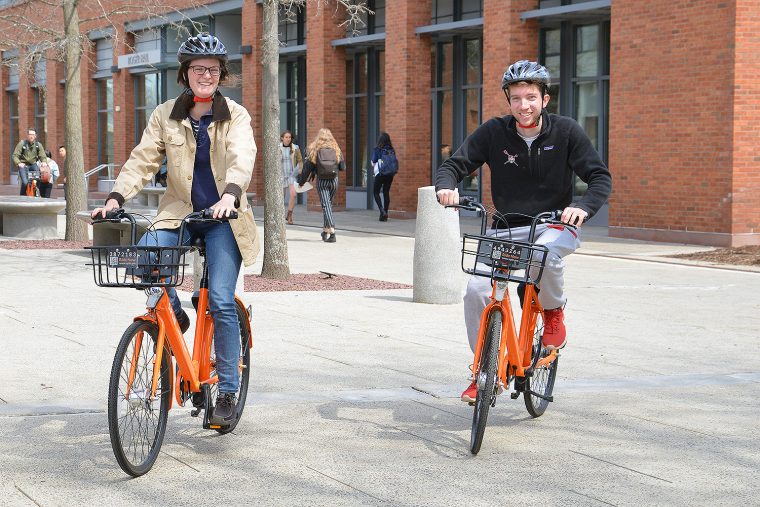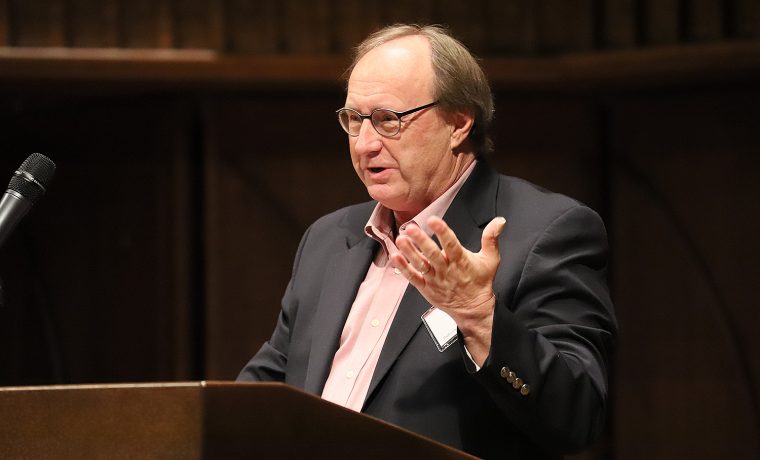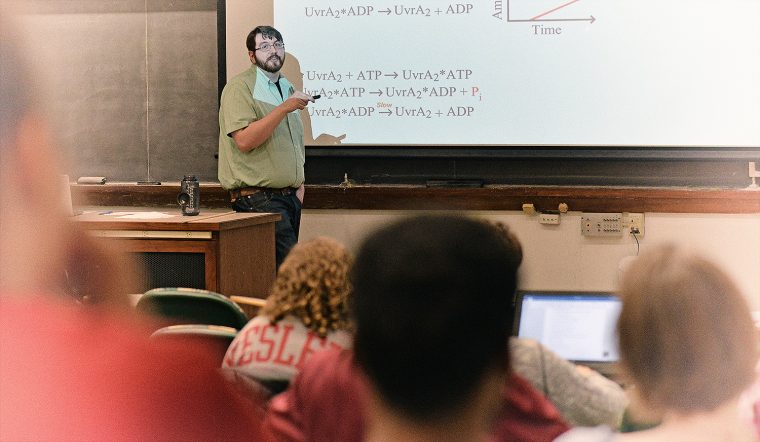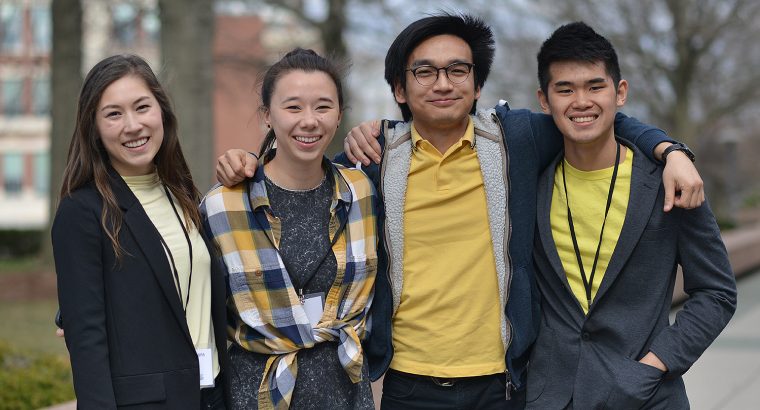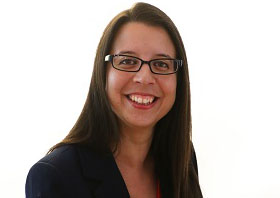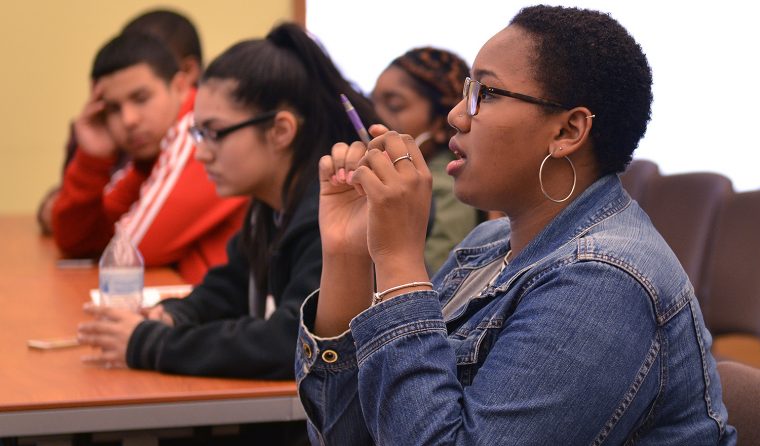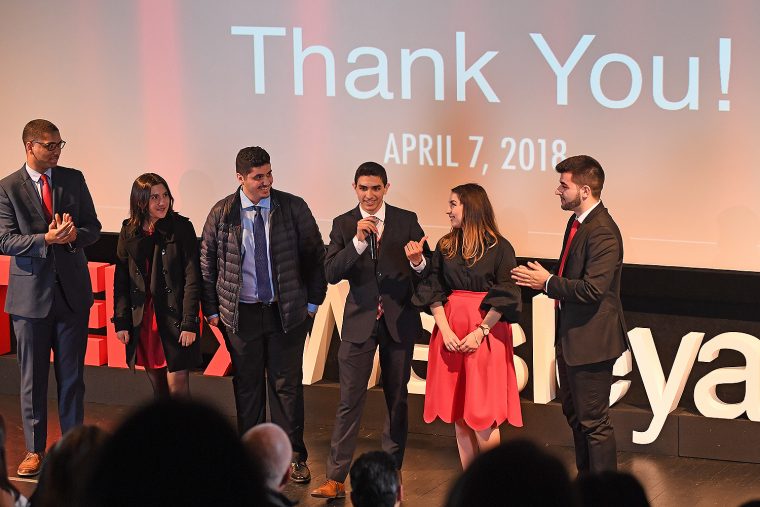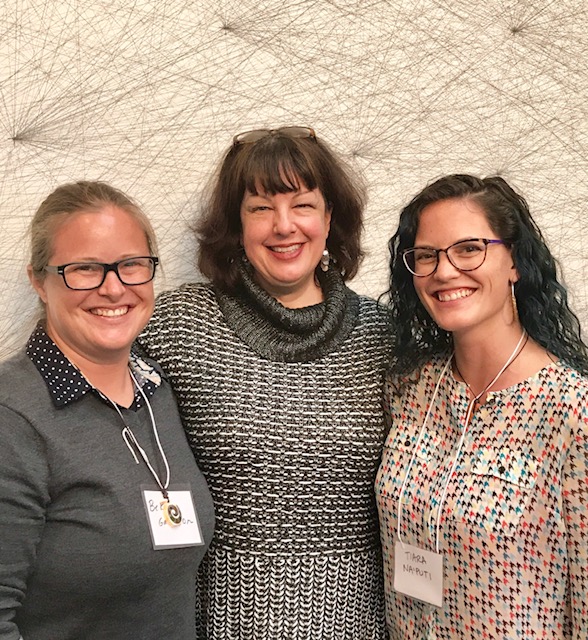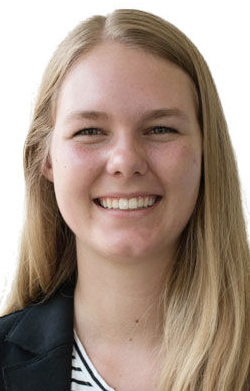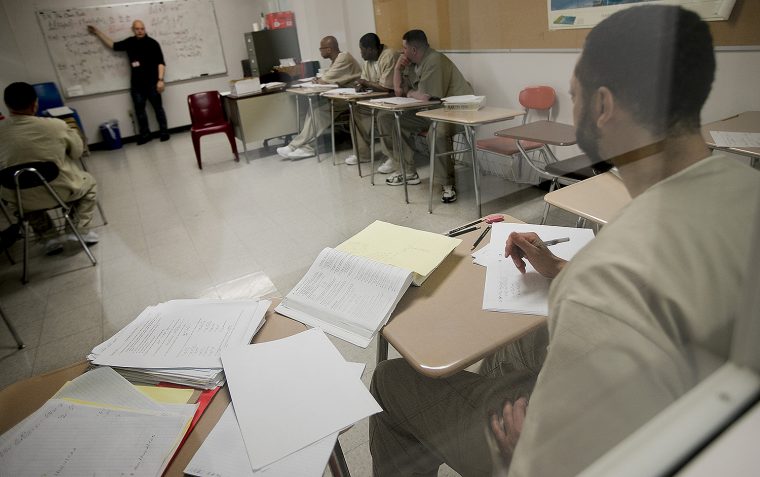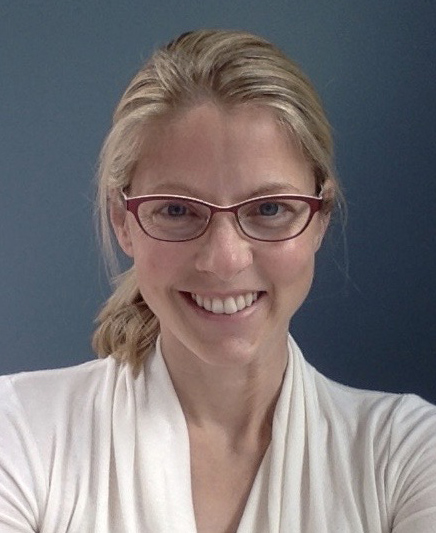On April 12, Wesleyan launched a new bikeshare pilot program for the campus community. Spin, Wesleyan's partnering company, has placed 100 orange dockless bikes at multiple locations throughout campus. Anyone with a wesleyan.edu email can borrow a bike for 50 cents for 30 minutes or receive unlimited rides for $14 per month. All new users get two hours of free riding. Anyone without a wesleyan.edu email address can rent a bike for $1 for 30 minutes or $29 per month. To get started, riders can download the app by searching “Spin Bikes” in the app store and signing up with an @wesleyan.edu email.…
(more…)
(more…)
Seventy students from six universities participated in the annual DataFest April 6-8 at Wesleyan. Under the auspices of the American Statistical Association, the event is organized by Wesleyan's Quantitative Analysis Center. During the event, teams from Wesleyan, Trinity College, Connecticut College, the University of Connecticut, Yale University, and Bentley University were presented with a large, complex data set and worked over the weekend—and around the clock—to explore, analyze, and present their findings to a panel of judges. Judges included Agbon Edomwonyi '16, data scientist for the City of Newark, N.J.; Rich Anziano, global head of statistics for Pfizer; Melissa Mischell '17,…
Melanie Khamis, assistant professor of economics and of Latin American studies, was named a fellow of the Women and Public Policy Program (WAPPP) at Harvard Kennedy School for the 2018–2019 academic year. In this fellowship, she hopes to continue and expand her research on “Gender in the Labor Market,” with a particular focus on the gender wage gap and occupational choices of women. “I am excited to have this opportunity to join and work with a community of leading researchers in this field,” said Khamis. According to its website, WAPPP is dedicated to closing "gender gaps in economic opportunity, political participation,…
On April 3, the Center for Jewish Studies honored Talia Cohen '19 with the Best Student Paper in Jewish Studies award. Cohen’s paper, which she wrote for her Romantic Poetry class during the fall semester, examines a work by Jewish composer Isaac Nathan as a powerful response to anti-Semitism. Specifically, she considers his decision to set Byron's “She Walks in Beauty” to a Sephardic Portuguese tune for Solomon ha-Levi Alkabez’s 16th-century mystical Sabbath poem, “Lecha Dodi.” According to the abstract, "While Hebrew Melodies (1815), the songbook to which the musicalized version of Lord Byron’s 'She Walks in Beauty' belongs, was widely…
Nationally known leaders and distinguished Wesleyan alumni and faculty presented short, powerful talks during the inaugural TEDxWesleyanU event April 7 in the Ring Family Performing Arts Hall. Launched in 2009, TEDx is a program of locally organized events that bring the community together to share a TED-like experience. At a TEDx event, TED Talks video and live speakers combine to spark deep discussion and connection. Some of the best talks from TEDx events have gone on to be featured on TED.com and garnered millions of views from audiences across the globe. Speakers included Maria Santana ’98, a correspondent for CNN…
J. Kēhaulani Kauanui, chair and professor of American studies, professor of anthropology, and director of the Center for the Americas, delivered one of two keynotes at a conference on “Archipelagos and Aquapelagos—Conceptualizing Islands and Marine Spaces.” The gathering, hosted by the Global South Center at The Pratt Institute on March 30—April 1, focused on the need to reinvestigate and reconceptualize the nature of the aggregations of islands commonly referred to as "archipelagos" in order to produce more sophisticated understandings of them, along with the environmental, social, and transnational issues and impacts involved. As the organizers of the conference, May Joseph, Luka…
Chemistry and environmental studies major Kate Sundberg ’20, one of 20 students nationwide who are part of the Friends Committee on National Legislation Advocacy Corps, attended the Spring Lobby Weekend on March 17–20 advocating for immigration policy with Congress. The Advocacy Corps is a yearlong program where young adults between the ages of 19–30 organize their local communities around federal legislation. As an organizer, Sundberg connects local activists and leaders with Congress to affect meaningful, bipartisan climate action. (more…)
Wesleyan has received a $1 million, four-year grant from the Andrew W. Mellon Foundation to support operations at the Center for Prison Education (CPE). The grant will allow CPE to expand its advanced course offerings, recruit new faculty, and bolster its partnership with Middlesex Community College (MxCC) and the Connecticut Department of Corrections. Since 2009, CPE has offered accredited Wesleyan courses to students at the Cheshire Correctional Institution, a maximum security prison for men. In 2013, the program expanded to offer the same coursework to students at York Correctional Institution for women. Courses range from English to biology to philosophy,…
The scent of ancient perfumes evaporated eons ago, but scientists are able to reconstruct their ingredients by analysis of the residues left on their containers. Up until now, however, such studies have largely been isolated in the scientific literature, disconnected from the textual and archaeological data that place these perfumes back into the hands of their ancient users. Kate Birney, assistant professor of classical studies, archaeology, and art history, is hoping to change that as co-architect of the OpenARCHEM project, which seeks to assemble the largest set of organic residue samples ever collected from archaeological artifacts around the Mediterranean. Built…


